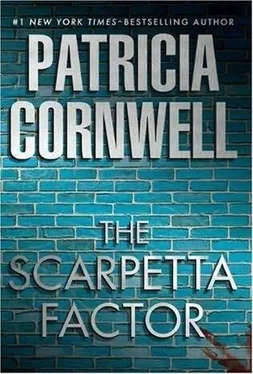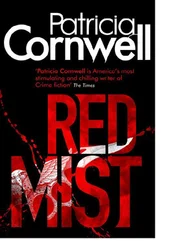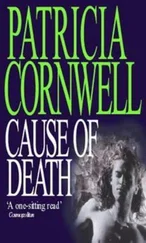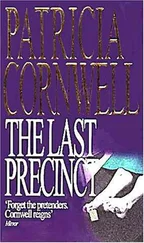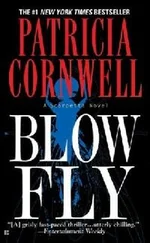“Then she’s stalking you.”
“That’s what I call it. Yeah, exactly.”
“And this started when?” Berger asked.
“I don’t know. Last year. Maybe a year ago this past fall. I got referred.”
“By whom?”
“Someone in the business who thought I might get something out of it. Career guidance.”
“I’m asking for a name,” Berger said.
“I got to respect confidentiality. A lot of people go to her. You’d be amazed.”
“Go to her, or does she come to you?” Berger said. “Where do the meetings take place?”
“She came to my apartment in TriBeCa. High-profile people aren’t going to come to wherever she lives and risk being followed and maybe caught on camera. Or she does readings on the phone.”
“And how does she get paid?”
“Cash. Or if it’s a phoner, you mail a cashier’s check to a P.O. box in New Jersey. Maybe a few times I talked to her on the phone, and then cut her off because she’s so damn crazy. Yeah, I’m being stalked. We should talk about me being stalked.”
“Does she show up places where you are? Such as your apartment in TriBeCa, where you’re filming, places you frequent, such as the bar on Christopher Street here in New York?” Berger asked.
“She leaves messages all the time at my agent’s office.”
“She calls L.A.? Fine. I’ll give you a good contact at the FBI field office in L.A.,” Berger said. “The FBI handles stalking. One of their specialties.”
Judd didn’t reply. He had no interest in talking to the FBI in L.A. He was a cagey bastard, and Berger wondered if the person whose confidentiality he was protecting might be Hannah Starr. Based on what he’d just said, he first met Dodie around the same time his financial transactions with Hannah began. A year ago this past fall.
“The bar on Christopher Street,” Berger redirected, not satisfied that Dodie Hodge was related to anything that mattered and annoyed that Marino had interrupted her interrogation of someone she’d begun to strongly dislike.
“You can’t prove anything.” The defiance was back.
“If you really believe we can’t prove anything, why did you bother to show up?”
“Especially since you almost didn’t,” Lucy interrupted, busy on her MacBook. Typing e-mails and looking at maps.
“To cooperate,” Judd said to Berger. “I’m here to cooperate.”
“I see. You couldn’t fit cooperation into your busy schedule three weeks ago when you first came to my attention and I tried repeatedly to get hold of you.”
“I was in L.A. ”
“I forgot. They don’t have phones in L.A. ”
“I was tied up, and the messages I got weren’t clear. I didn’t understand.”
“Good, so now you understand and have decided to cooperate,” Berger said. “So, let’s talk about your little incident this past Monday-specifically, what happened after you left the Stonewall Inn at fifty-three Christopher Street late Monday night. You left with that kid you met, Eric. Remember Eric? The kid you smoked weed with? The kid you talked so openly with?”
“We were high,” Judd said.
“Yes, people say things when they’re high. You got high and told him wild-ass tales, his words, about what happened at Park General Hospital in Harlem,” Berger said.
They were naked beneath a down-filled duvet, unable to sleep, tucked into each other and looking out at the view. The Manhattan skyline wasn’t the ocean or the Rockies or the ruins of Rome, but it was a sight they loved, and it was their habit to open the shades at night after turning off the lights.
Benton stroked Scarpetta’s bare skin, his chin on top of her head. He kissed her neck, her ears, and her flesh was cool where his lips had been. His chest was pressed against her back, and she could feel the slow beat of his heart.
“I never ask you about your patients,” she said.
“Clearly I’m not much of a distraction if you’re thinking about my patients,” Benton said in her ear.
She pulled his arms around her and kissed his hands. “Maybe you can distract me again in a few minutes. I’d like to raise a hypothetical question.”
“You’re entitled. I’m surprised you have only one.”
“How would someone like your former patient know where we live? I’m not suggesting she left the package.” Scarpetta didn’t want to say Dodie Hodge’s name in bed.
“One might speculate that if someone is sufficiently manipulative, that person might successfully extract information from others,” Benton said. “For example, there are staff members at McLean who know where our apartment is, since mail and packages are occasionally sent to me here.”
“And staff members would tell a patient?”
“I would hope not, and I’m not saying that’s what happened. I’m not even saying this person’s ever been to McLean, been a patient there.”
He didn’t need to say it. Scarpetta had no doubt that Dodie Hodge had been a patient at McLean.
“I’m also not saying she had anything to do with what was left at our building,” he added.
He didn’t need to say that, either. She knew Benton feared his former patient had left the package.
“What I will say is others might suspect she did, no matter what we discover to the contrary.” Benton spoke softly, the intimacy of his tone incongruous with the conversation.
“Marino suspects it and in fact is probably convinced of it, and you’re not convinced. That’s what you’re saying.” Scarpetta didn’t believe it.
She believed Benton was convinced about this former patient named Dodie who had brazenly called CNN. Benton was convinced she was dangerous.
“Marino might be right. And he might not be,” Benton said. “While someone like this particular former patient might be bad news and potentially harmful, it would be even more harmful if the package was sent by someone else and everyone has quit looking because they think they know the answer. And what if they don’t? Then what happens? What next? Maybe someone really gets hurt next time.”
“We don’t know what the package is. It could be nothing. You’re getting ahead of yourself.”
“It’s something. I can already promise you that,” he said. “Unless you starred in a Batman movie and didn’t tell me, you’re not the chief medical examiner of Gotham City. I don’t like the tone of that. Not exactly sure why it bothers me as much as it does.”
“Because it’s snide. It’s hostile.”
“Maybe. The handwriting interests me. Your description that it was so precise and stylized it looked like a font.”
“Whoever wrote the address has a steady hand, maybe an artistic hand,” Scarpetta said, and she sensed he was thinking about something else.
He knew something about Dodie Hodge that was causing him to focus on the handwriting.
“You’re sure it wasn’t generated by a laser printer,” Benton said.
“I had quite a long time to look at it on the elevator. Black ink, ballpoint. There was sufficient variation in the letter formation to make it obvious the address was hand-printed,” she said.
“Hopefully there will still be something to look at when we get to Rodman’s Neck. The airbill might be our best evidence.”
“If we’re lucky,” she said.
Luck would be a big part of it. Most likely the bomb squad would foil any possible circuitry inside the FedEx box by blasting it with a PAN disrupter, more popularly known as a water cannon, which fires three to four ounces of water, propelled by a modified twelve-gauge shotgun round. The primary target would be the alleged explosive device’s power source-the small batteries that showed up on x-ray. Scarpetta could only hope that the batteries weren’t directly behind the hand-printed address on the airbill. If they were, there would be nothing left but soggy pulp to look at later this morning.
Читать дальше
